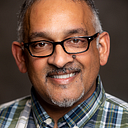Mathematics Education Has Never Been About Loving Mathematics
Joy. Wonder. Awe. Beauty. Passion. Wonder. Adventure. These words are almost extinct in mathematics education.
They have been replaced by proficiency, efficiency, tasks, and success. These are the same words we we would use to describe functioning in a work place.
Before the pandemic, a phrase like “Everyone is a mathematician” had some hopeful poetry and spirituality attached to it. Now, for me, it means nothing other than you too can be a good worker bee to externally validate the purpose of mathematics from the hours of 9 to 5, doing long division on your coffee break.
Math education has caused boredom, alienation, anxiety, and trauma. So telling people that everyone is a mathematician — even with the best intentions — feels too much like a feel-good slogan to slap on a coffee mug, lazily ignoring that school math has caused so much mental health damage to students.
It’s like saying everyone is a karaoke person. I hate karaoke.
It’s like saying everyone can put together IKEA furniture. I hate that as well.
It’s like saying you love food, music, and reading. Okay, what are you eating, listening to, and recommending for books to read?
To just say “math” is everywhere and everyone can love it feels disingenuous and shallow. Does everyone love decimals, simplifying polynomial expressions, and those asinine trigonometry application questions?
Again, please please talk about specific content if you are going to attach broad labels of loving math.
But this is part of the general problem in mathematics education, we have simply stopped talking about specific content issues — good or bad — and now are engaged in delivery models.
What’s the best way to deliver mathematics without giving equal consideration to what is being delivered.
It’s laughable to think that the tv show NUMB3RS even existed, earnestly trying to give a more spherical and magical perspective of mathematics.
Mathematics has become a cheap, tasteless protein shake for morning consumption. Drink it, it’s good for you. It’s chock full of algorithm nutrients and 500% of your daily allowance of fractional goodness.
If mathematics is a forest, then mathematics education is deforestation — taking the practical wood.
This past weekend I submitted a 2800 word article that I wrote with my daughter about mental health. What does mathematics mean to both her and I?
I guess, in the end, as simple and romantic as it sounds, I am simply trying to protect the mathematical forest. I’ve done it for myself and my daughter. I am still going to share that message.
And maybe, in the end, that was enough…
